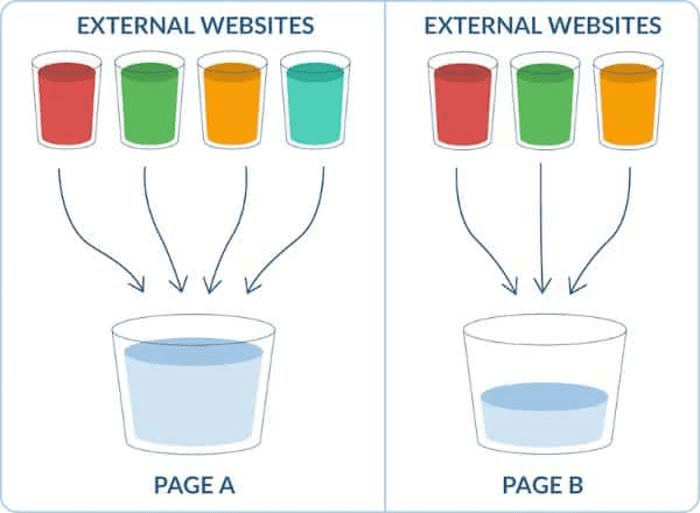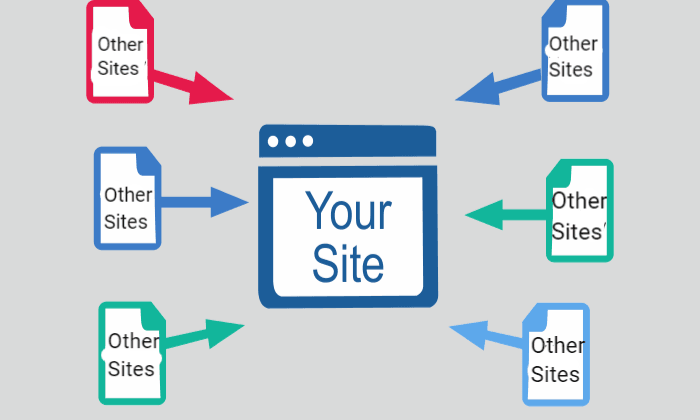Helpful Summary
Overview: This article offers a comprehensive guide on SEO keywords, highlighting their significance in enhancing online visibility.
Why trust us: At Keyword Metrics, we help website owners leverage Google Search Console to optimize high-traffic keywords boosting their SERP rankings in the process.
Why it matters: Understanding and applying SEO keywords effectively is essential for driving targeted traffic, gaining insights into customer behavior, and maximizing ROI.
Action points: Develop a strategic SEO keyword plan with Keyword Metrics to boost visibility and increase conversions.
Further research: Explore the Keywords Metric blog for additional strategies on keyword optimization.
Can SEO Keywords Boost Online Growth?
Mastering SEO keywords is critical if you want to stand out among millions of websites. In fact, 36.3% of SEO experts allocate most of their time to keyword research, underscoring its importance. However, understanding which SEO keywords to target and how to use them effectively can be a daunting task.
In this Keyword Metrics article, we break down the essentials of SEO keywords, provide practical examples, and guide you on effective usage.
But before we do that…
Why Trust Us?
At Keyword Metrics, we empower businesses with tools that help them identify high-traffic keywords they already rank for and optimize their content to enhance SERP visibility. Our approach transforms keyword insights into tangible growth, leading to improved rankings and increased traffic.
What are SEO Keywords?
SEO keywords are the words and phrases users enter into search engines when seeking information, products, or services. These search queries help users find your website.
By incorporating relevant keywords into your web content, you help search engines understand your site's content and match it with related queries. This alignment increases your chances of ranking higher in search results and attracting targeted traffic.
For instance, if you want to rank for "Best software developer jobs," include this phrase naturally in your content. This will drive traffic from searches for that term to your site. The closer your keywords match users' search queries, the better your content will perform in search rankings.
However, keep in mind that ranking on Google involves more than just including keywords in your content. Effective SEO also requires a well-rounded strategy that includes quality content, user experience, and technical optimization.
What is Search Intent & How Does it Relate With SEO Keywords?
Search intent refers to the purpose behind a user’s search query, indicating what they’re hoping to achieve with their search. Understanding search intent is crucial in SEO, as it allows you to align your content with what users are actually looking for, making your content more relevant.
Here’s how different types of search intent relate to SEO keywords:
Informational Intent
This is when the user is seeking information. Keywords like ‘What is software development?’ or ‘How to train as a software developer’ are examples. Content targeting these keywords should provide clear, comprehensive answers to the user’s questions.
Navigational Intent
This occurs when the user knows where they want to go but needs help getting there. Keywords like ‘Twitter login’ or ‘Facebook sign up’ indicate that the user is looking for a specific webpage. Optimizing your content for these keywords helps guide users directly to the pages they’re seeking.
Commercial Intent
Users with commercial intent are researching products or services before making a purchase decision. Keywords like ‘Best grammar software for writers’ or ‘Grammarly vs Hemingway’ reflect this. Content should offer comparisons, reviews, or detailed product information to aid in their decision-making process.
Transactional Intent
This is when the user is ready to take action, such as making a purchase. Keywords like ‘Sign up for Grammarly’ or ‘Order ice cream online’ are transactional. Optimizing for these keywords means your content should include clear calls to action and easy pathways for users to complete their desired transaction.
Types of Keywords for SEO
Seed Keywords
Seed keywords are broad terms that form the foundation of your keyword research. They have high search volumes but also high competition due to their general nature. Examples include ‘software’ or ‘software development’. Seed keywords are usually 1-2 words and help you uncover more specific keywords to target.
Long-tail Keywords
Long-tail keywords are specific multi-word phrases that target a narrower search intent. Typically consisting of three or more words, they are more descriptive. An example is ‘Affordable grammar software for freelance writers.’
Primary Keywords
Primary keywords are the main focus of a webpage. They are central to your page’s SEO strategy and help improve your chances of ranking high on SERPs. For example, ‘Best grammar software’ is a primary keyword.
Secondary Keywords
Secondary keywords support the primary keyword by providing additional context and covering related subtopics. They enhance the overall SEO strategy. Examples include ‘grammar checking tools’, ‘grammar and spelling software’, and ‘grammar software reviews.’
Branded keywords
Branded keywords are terms that include your brand name or variations of it. These keywords help strengthen brand recognition and ensure that your business appears in search results when users specifically search for your brand. An example of a branded keyword is ‘Grammarly grammar checker’ or simply ‘Grammarly.’
Why is Selecting the Right SEO Keywords Important?
Increased Visibility
SEO keywords enhance your content’s visibility, helping it stand out among millions of pages on search engine result pages (SERPs). By targeting the right keywords, you signal to search engines that your content is relevant to specific searches, making it more likely to appear prominently in search results.
Increased visibility drives more traffic to your website and attracts qualified leads, ultimately boosting engagement and conversion rates.
Insight Into Customer Behavior
SEO keywords provide valuable insights into customer behavior. Analyzing which keywords drive traffic to your site helps you understand your audience’s preferences and needs.
With 94% of keywords getting ten or fewer searches each month, understanding these trends allows you to refine your content strategy and better meet your audience’s expectations.
Improved ROI
The ultimate goal of any marketing effort is to boost return on investment (ROI), and selecting the right SEO keywords plays a crucial role in achieving this. By strategically targeting keywords at every stage of the buying funnel, you can attract more leads, increase conversions, and, as a result, improve ROI.
SEO Keyword Examples for Different Business Types
Below, we provide practical examples of how to effectively use SEO keywords across various business types.
Local Business
If you run a local business, strategically incorporating location-specific keywords into your web content can help you attract customers in your area. This is especially effective if your product or service is targeted at people living near your business location.
For example, if you offer plumbing services, targeting customers in your vicinity is crucial for logistical reasons. To do this effectively, use location-based keywords like "Plumbers in Houston."
So, primary keyword examples for a plumbing company in Houston would be:
Plumber in Houston
Best plumber in Houston
Houston plumbers
Examples of secondary SEO keywords for the same company include:
Affordable plumbers in Houston
Emergency plumbing services in Houston
Plumbing contractors in Houston
Finally, here are some long-tail keyword examples:
Best affordable plumber for emergency repairs in Houston
Best plumbing company for drain cleaning in Houston
Best plumber for water heater installation in Houston
E-commerce Website
For e-commerce websites, applying SEO keywords effectively is even more important.
For instance, if you own an online store for gym apparel, here are some primary keywords (which can also act as seed keywords) to consider:
Workout clothes
Gym apparel for men
Gym apparel for women
How about some secondary keyword options?
Breathable fitness apparel
Lightweight running shorts
Yoga pants with pocket
Let’s not forget long-tail keywords for more targeted searches:
Affordable high-performance workout clothes for men
Plus-size yoga pants with tummy control and pockets
Comfortable workout clothes for hot weather
Software Company
Here are primary keyword examples of an e-signing software company:
E-signature software
E-signature platform
Electronic signing tool
For secondary keywords, here are some examples:
Legally binding e-signatures
Multi-user e-signature platform
Bulk document signing online
Here are some examples of long-tail keywords:
Best e-signature software for legal documents
Affordable electronic signature solutions for small businesses
Secure online signature tools for remote teams
Optimize Your SEO Keywords with Keyword Metrics
What’s the next step after implementing an SEO keyword strategy and achieving good rankings? Optimization.
That’s where Keyword Metrics steps in. We not only help you discover high-traffic keywords but also enhance your content and refine your strategies for better results.
Here’s how:
Content auditing: Leverage Google Search Console data to quickly scan all your pages with advanced filters, pinpointing high-traffic keywords you’re already ranking for but aren’t targeting effectively.
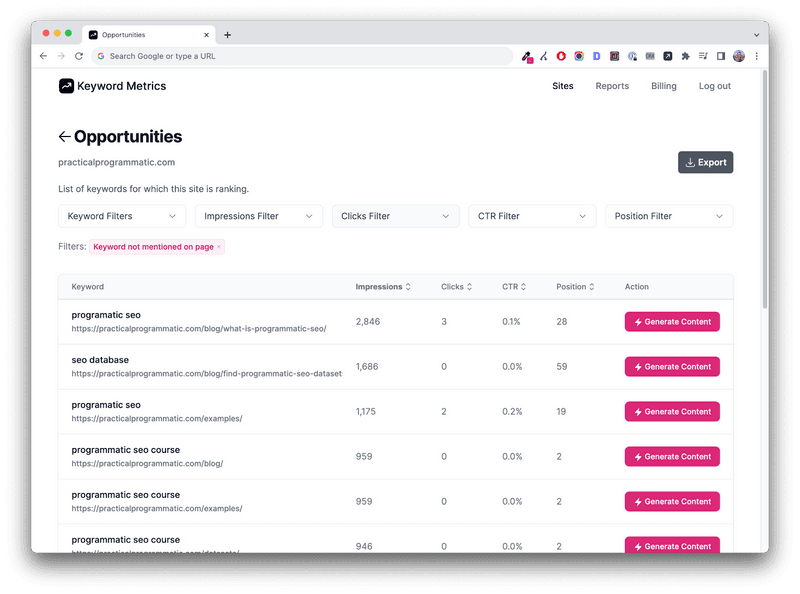
Workflow for keyword opportunities: Find keywords relevant to your content and target them more effectively to rank higher.
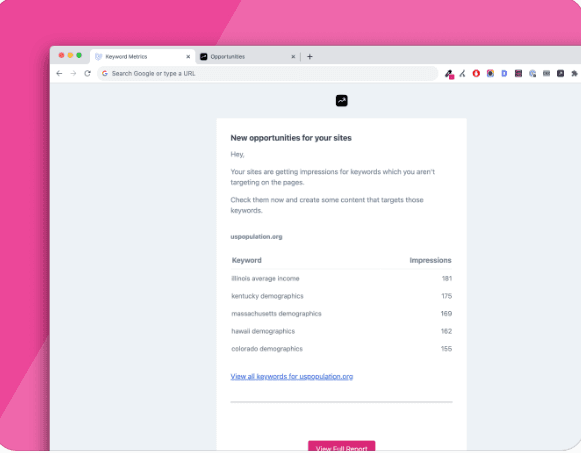
Question filters: Discover all the questions users are asking and integrate answers into your content, boosting its relevance and potential for higher rankings.
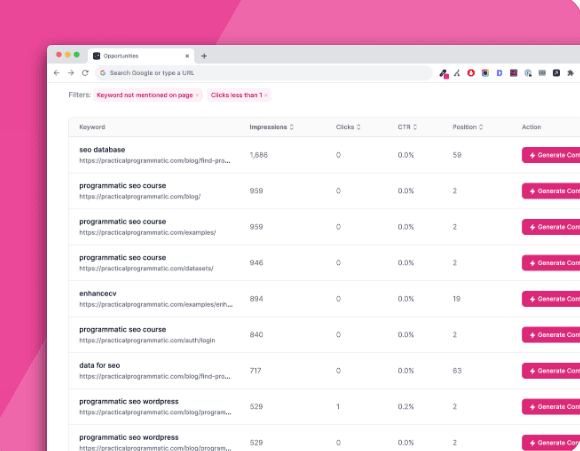
SEO-friendly content generation: Generate keyword-rich content that integrates seamlessly with your existing material, all while using Google Search Console data to inform your strategy.
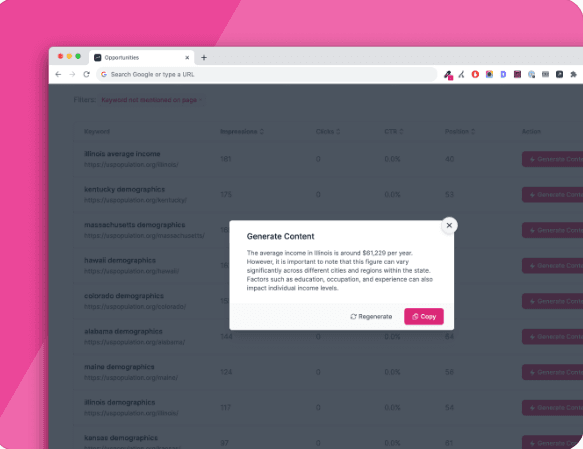
Ready to elevate your SEO game? Join Keyword Metrics today and start optimizing your keywords for higher rankings, increased traffic, and more conversions.
Check out our article on the 14 Most Important Metrics Used in Selecting the Best SEO Keywords.

